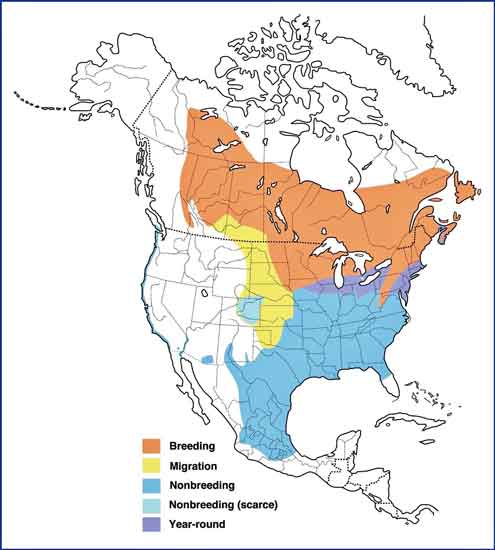Sadly, singing, guitar and way too many other used-to-do things slipped away with age and disuse. I suppose I could still carry a tune if I practiced, started slow and warmed up. Apparently, that’s what at least one songbird does every morning.
 |
| Swamp sparrow (from Kathy Nouri's Little Birds www.pinterest.com/pin/455919162257411101/). |
Like many birds, swamp sparrows (Melospiza georgiana), mainly the males, join the so-called “dawn chorus” and start vocalizing in predawn hours.
Why so early? There have been different thoughts about that. Less wind to distort their sound? Too little light to do much else? Males demonstrating their strength? Or maybe they’re just warming up.
To test the last, researchers affiliated with Duke University examined whether the birds’ vocal performance improved over the morning.
They analyzed 1,527 songs of 11 captive male swamp sparrows, recorded from 2 a.m. to noon, devoting two to three mornings for each bird. Four of the birds were developmentally stressed as juveniles.
The Swamp Sparrow’s Performance
I’ve blogged about compositional syntax and how birds produce complex vocalizations composed of different types of notes (see Bird Talk Revisited). Bird song is a balance of speed and dexterity. The birds switch from one note to the next by opening and closing their beaks, precisely coordinating movements of their beak and voice box with each breath.
The swamp sparrow’s song is a simple trill of up to five notes, repeated about 5 to 10 times a second. (A link to examples is included in the P.S.) The researchers measured each bird's trill rate and vocal range over the course of the morning. Statistical analysis revealed the birds take it easy at first, singing slower or with limited range. They pick up the tempo and reach for higher and lower pitch after hundreds of takes, just after dawn.
The study showed vocal performance improved across the morning as a function of both the cumulative number of songs previously performed and the time of day. Song types with introductory syllables showed greater improvement than more typical song types composed solely of trilled syllables.
 |
| Swamp sparrow (from Helen Macy’s Sparrows www.pinterest.com/pin/309622543115854312/). |
Wrap Up
The researchers point out that, while it’s difficult and possibly wrong to compare the results to humans, the physical demands of singing appear to benefit from a daily warm-up session. Moreover, if variation in performance is as important as it seems to be in impressing females and rivals, vocal performance improvement over the course of a day may push birds to sing early and often. Of course, fatigue may limit the extent of this advantage.
Thanks for stopping by.
 |
| Swamp sparrow range map (from Cornell Lab www.allaboutbirds.org/guide/Swamp_Sparrow/maps-range). |
Example article on why birds start singing so early: www.wbu.com/birds-sing-early-morning/
Study of swamp sparrow song performance in Animal Behaviour journal: www.sciencedirect.com/science/article/abs/pii/S0003347220301779
Articles on study on EurekAlert! and CNN websites:
eurekalert.org/pub_releases/2020-08/du-slp081820.php
www.cnn.com/2020/08/22/us/songbirds-sing-loudly-warmup-scn-trnd/index.html
Cornell University Ornithology Lab swamp sparrow guide and sounds:
www.allaboutbirds.org/guide/Swamp_Sparrow/
www.allaboutbirds.org/guide/Swamp_Sparrow/sounds

No comments:
Post a Comment